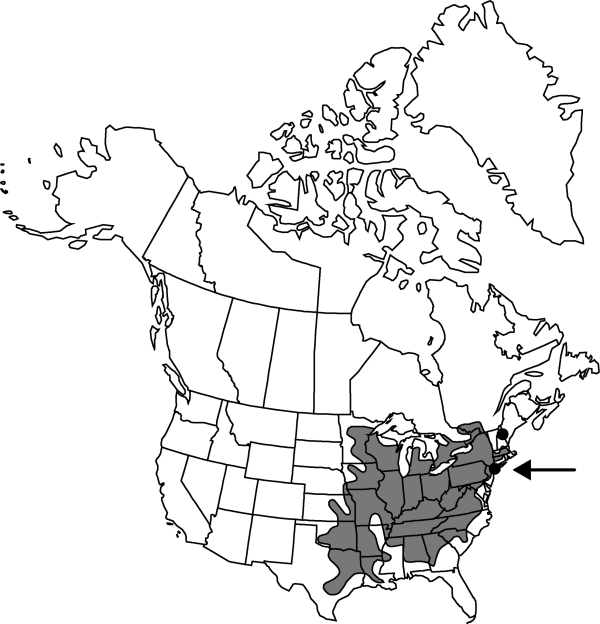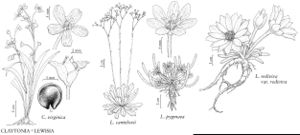Difference between revisions of "Claytonia virginica"
Sp. Pl. 1: 204. 1753.
imported>Volume Importer |
imported>Volume Importer |
||
| Line 68: | Line 68: | ||
|publication year=1753 | |publication year=1753 | ||
|special status=Weedy;Illustrated;Endemic | |special status=Weedy;Illustrated;Endemic | ||
| − | |source xml=https:// | + | |source xml=https://bitbucket.org/aafc-mbb/fna-data-curation/src/2e0870ddd59836b60bcf96646a41e87ea5a5943a/coarse_grained_fna_xml/V4/V4_957.xml |
|genus=Claytonia | |genus=Claytonia | ||
|species=Claytonia virginica | |species=Claytonia virginica | ||
Latest revision as of 22:02, 5 November 2020
Plants perennial, with globose tubers 10–200 mm diam.; periderm 0–0.5 mm. Stems 5–40 cm. Leaves: basal leaves petiolate 6–20 cm, blade linear, 3–14 × 0.5–1.3 cm; cauline leaves sessile, blade linear, 1–10 cm, tapered to slender base. Inflorescences 1-bracteate, rarely with 2 or more bracts; bracts reduced apically, scalelike. Flowers 5–12 mm diam.; sepals 5–7 mm; petals white to pinkish or rose (rarely yellow or orange) or white with pink-lavender candy-stripes, 7–14 mm; ovules 6. Seeds 2–3 mm diam., shiny and smooth; elaisome 1–2 mm. 2n = 12–190.
Phenology: Flowering Mar–Apr.
Habitat: Wetlands, seeps, moist woods, riparian hardwood forests, copses, bluffs, ravines, prairies
Elevation: 0-1000 m
Distribution

Ont., Que., Ala., Ark., Conn., Ga., Ill., Ind., Iowa, Kans., Ky., La., Md., Mass., Mich., Minn., Miss., Mo., Nebr., N.H., N.J., N.Y., N.C., Ohio, Okla., Pa., S.C., Tenn., Tex., Va., W.Va., Wis.
